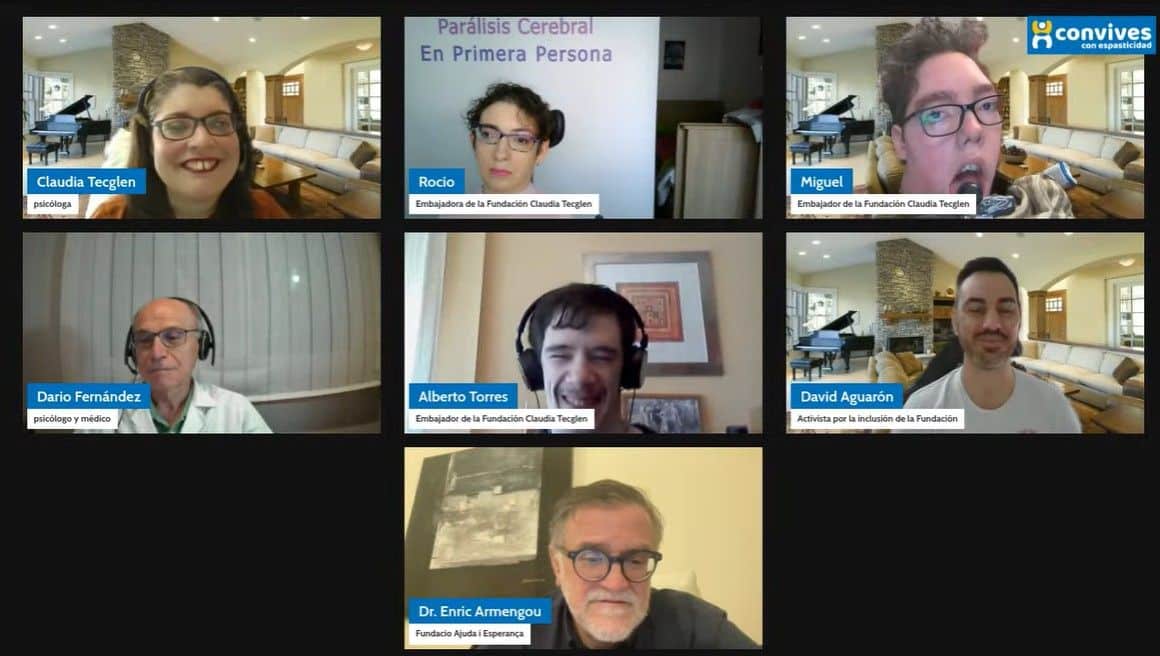Sure! Here’s the translation into American English:
—
In Spain, over a million people with disabilities live alone, which intensifies their feelings of isolation. This issue is exacerbated by insomnia and the growing dependence on new technologies, which, instead of bringing people closer, often increase the distance from their surroundings.
Last Saturday, the Association “Convives con Espasticidad” held the online event “Live with Hope!”, focused on highlighting these challenges. During the meeting, first-person accounts from people with disabilities were shared, complemented by the perspectives of experts, creating a space for reflection and hope.
Eight speakers participated, six of whom were individuals with disabilities, addressing topics such as unwanted loneliness and addiction to technology. Claudia Tecglen, president of the association, emphasized that people with disabilities “are not victims, they are the protagonists of their lives.” The need to provide opportunities for these individuals to express their talents was also highlighted.
Dr. Darío Fernández, a psychologist and physician, stressed the importance of sleep as a basic necessity, offering practical advice to recall the best moments of the day while going to bed. There was also reflection on the excessive use of electronic devices and its consequences. Dr. Enric Armengou emphasized the significance of self-acceptance and establishing authentic connections that promote hope.
Sociologist Luis Bascones warned about the risks associated with suicide among people with disabilities, pointing out that chronic pain and loneliness can become invisible enemies. Several personal testimonies highlighted daily struggles and dreams achieved despite adversity. Alberto Torres, a former participant in the Coping School, shared his transition from a frustrated dream of becoming a soccer player to becoming a coach.
Rocío Molpeceres discussed how finishing her degree in Social Work gave her the strength to compete equally in society. David Aguarón recounted his transformative journey after an accident, emphasizing the importance of seeking psychological help and celebrating his new role as a father. Miguel Camacho enthusiastically shared his daily routine, facing each day with excitement.
The event concluded with a clear message: hope is built collectively through the testimonies, knowledge, and courage of people with disabilities and their families. The expansion of the module “Believe in Life Again,” part of the Online School of Active Coping with Disability, was also announced, which has supported over 11,000 individuals since its launch in 2019.
This event was made possible by the support of various foundations that back the work of “Convives con Espasticidad,” seeking accessible resources to improve the quality of life for people with disabilities and their families.
—
Let me know if you need any further assistance!
Source: MiMub in Spanish
